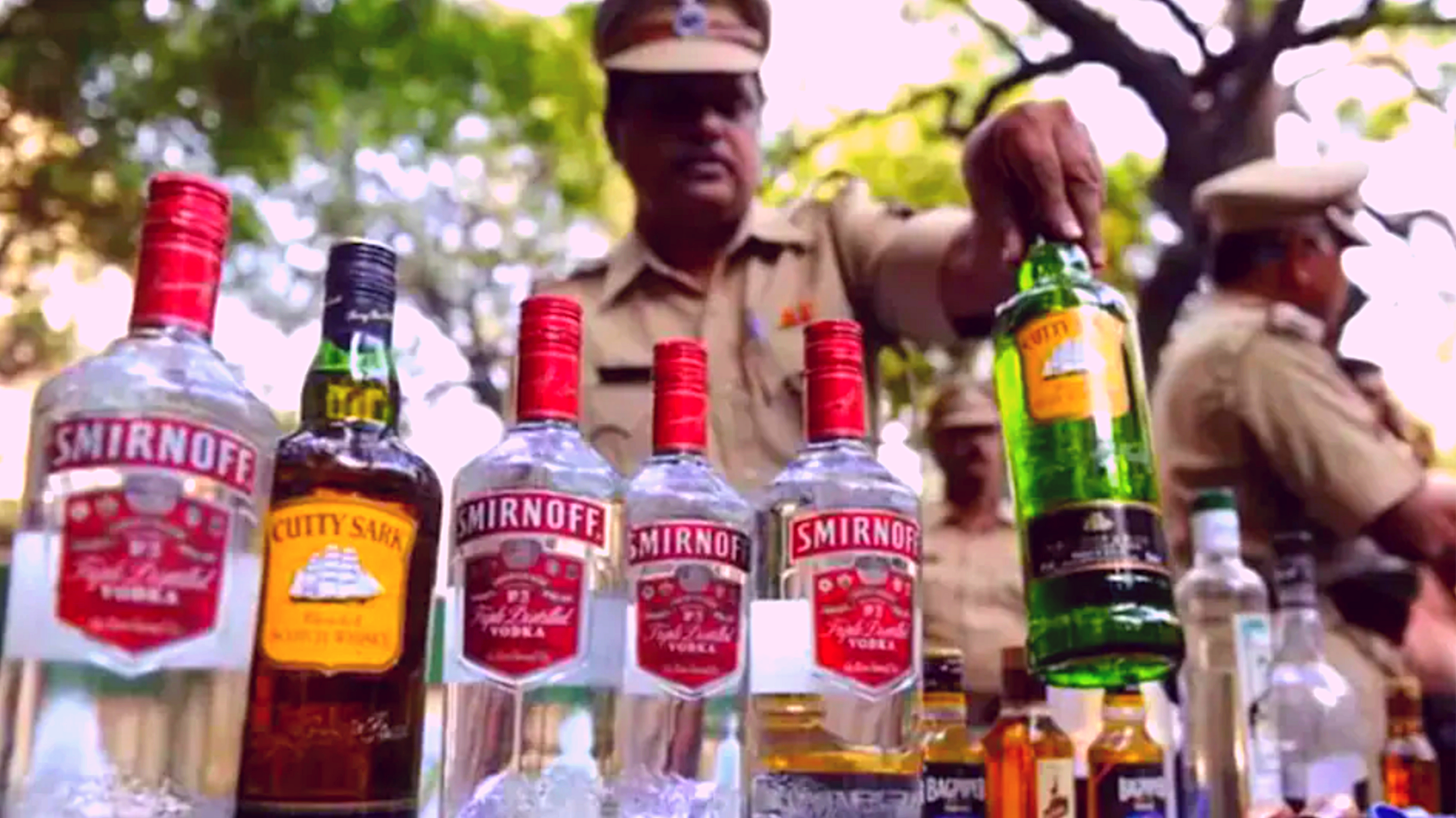Bihar liquor ban: Boon or bane debate back into focus

Even as some political bigwigs are demanding ease or an end to liquor ban, women in the state are firmly standing with chief minister Nitish Kumar on prohibition.
Sami Ahmad | TwoCircles.net
PATNA (BIHAR) — A day after Bihar’s former chief minister and Dalit leader Jitan Ram Manjhi urged deputy chief minister Tejashwi Yadav to plead with chief minister Nitish Kumar to end or ease the liquor ban, the chief minister urged the Jivika Didis [women associated with self-help groups (SHGs) under a rural livelihood project] to start a movement for total prohibition.
Although Kumar has urged Didis earlier too to implement prohibition, this time he seems more determined. Mahatma (Gandhi) and Mahila (women) are the two strongest reasons put forward by Nitish Kumar to justify his liquor ban policy implemented from April 5, 2016.
The chief minister has said that it was Mahila (women) who asked him to implement total prohibition. He also refers to Mahatma Gandhi as a reason for prohibition saying the father of the nation always wanted Sharab-Bandi (liquor ban).
The liquor ban has been hailed by the women of the state even if chief minister Kumar was facing criticism over its implementation.
Savita Kumari, a senior journalist covering gender and social issues, told TwoCircles.net that there was no doubt that women were happy with this policy. “It has helped Nitish Kumar in getting electoral support along with his other women-friendly initiatives,” she said.
Kumari said that roadside hooliganism after getting drunk is almost nil due to this policy. "Girl students feel safe going to their institutes even late in the evening as they don’t face any drunkards in the way,” she said.
Kumari noted that it is a fact that prohibition has helped in reducing domestic violence but “a different kind of violence can be witnessed which is not reported as women fear that if they report it, the police will act upon the men who smuggle liquor.”
“Revoking prohibition will be even worse. What is required cannot be achieved only through law. There must be social awakening,” she said and welcomed the announcement to induct Jivika Didis for this work.
The prohibition has also led to a decrease in road accidents, especially during the Holi festival in March every year, as per a study conducted by Yuva Prayas, an NGO.
"Our research in the Gaya district of Bihar found that road accidents were high during the Holi festival in March before prohibition. However, we found that road accidents have decreased significantly during March every year since the liquor ban," Shamimul Haque, secretary of Yuva Prayas, told TwoCircles.net.
Opposition to liquor ban
The anti-liquor ban lobby in the state has vehemently questioned the policy on primarily three accounts. They say that the prohibition has not succeeded and secondly it leads to hooch tragedies (deaths caused by intake of inferior quality liquor called hooch). Thirdly, the liquor ban in the state badly impacts Dalits who are poor as most Hooch deaths are reported to be of Dalits and it is them who end up in jail for violating the prohibition.
A report released by the prohibition department of Bihar revealed that in 2022, over 1.55 lakh people were booked for violating liquor ban rules. Out of these, 1.51 lakh people (almost 97%) violators were let off after paying a fine. Those who are unable to pay a fine are sent to jail for three months. Following an amendment in April 2022, first-time offenders are getting away by paying a fine. As per one report, six months after the amendment, the Bihar government collected Rs 17.53 crore as fine from 72,000 offenders. Repeat offenders, however, are jailed for a year.
The Nitish Kumar government, however, has withstood this criticism and stood firm with the ban. He recently claimed that around 1.6 crore people had quit alcohol in Bihar since the liquor ban implementation. Even after facing severe criticism over the recent Hooch killings, the government ordered an survey to study the impact of prohibition.
A study titled ‘Temperance movement: the impact of liquor prohibition on socio-economy and livelihood in Bihar’ released in August 2022 by A.N. Sinha Institute, Patna and CN Law University, Patna said 80% of surveyed people wanted the liquor ban to continue.
Is liquor ban bad for tourism?
There are claims that the prohibition has affected tourism in Bihar.
A recent report by the tourism department said that more than 2.5 crore tourists visited Bihar last year, which is marginally less than the figures in 2016 when the liquor ban came into force.
Sanjay Kumar, general secretary of the Hotel Association of Bodhgaya, told TwoCircles.net that the corporate business of hotels was affected due to the prohibition as they are unable to host big corporate events where alcohol can be served.
“It [liquor ban] should stay with some relaxation for corporate programmes and events," he said.
One of the positive impacts of the liquor ban has been that hosting wedding parties at hotels has become hassle-free, he said. "Before the prohibition, we often witnessed brawls after people got drunk,” he added.
Sami Ahmad is a journalist based in Patna, Bihar. He tweets at @samipkb
